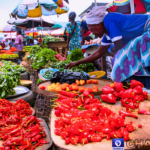The Economic Community of West African States (ECOWAS) has intensified efforts to launch its long-anticipated single currency, the ECO, with a revised rollout date of 2027.
This renewed commitment follows resolutions adopted during the 66th Ordinary Session of the Authority of Heads of State and Government, held in Abuja.
Originally planned for 2020, the launch was delayed by the COVID-19 pandemic and other logistical challenges. However, leaders at the session expressed optimism about meeting the new timeline, emphasizing the potential of the ECO to transform the region’s economic landscape.
ECOWAS adopted critical criteria for selecting member states to spearhead the ECO’s implementation. These criteria, proposed by a High-Level Committee, will guide the identification of eligible countries. Others will join the monetary union in subsequent phases.
- Advertisement -
The ECOWAS Commission and the West African Monetary Agency (WAMA) have been tasked with incorporating these guidelines into the protocol for establishing the ECOWAS Monetary Union.
Central banks and member states were urged to fulfill their financial obligations promptly to facilitate necessary reforms and operationalize institutions critical to the currency’s success. Leaders also stressed adherence to deadlines for institutional and technical readiness.
The ECO is envisioned as a tool to strengthen economic integration within the region. By addressing challenges associated with non-convertible national currencies, the single currency aims to reduce trade costs, boost intraregional trade, and promote economic prosperity.
Suggestions for the currency’s phased implementation include allowing national currencies to circulate alongside the ECO temporarily or establishing two distinct ECO zones where currencies are pegged to the new common currency.
Beyond monetary matters, ECOWAS leaders addressed food security challenges. They called for the swift execution of the Regional Rice Self-Sufficiency Roadmap and strategies for livestock development and pastoral system security. These initiatives align with the Comprehensive African Agriculture Development Programme’s long-term goals.
- Advertisement -
The successful rollout of the ECO is anticipated to strengthen regional cooperation, enhance economic stability, and unlock greater prosperity across West Africa.










